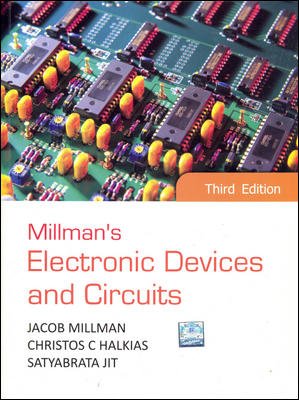
GATE Exam Syllabus For ECE
If you’re an Electronics and Communication Engineering (ECE) student preparing for the GATE exam, you’re in the right place! The Graduate Aptitude Test in Engineering (GATE) is one of the most competitive exams for engineering graduates, opening doors to prestigious M.Tech programs, PSU jobs, and research opportunities. But with so many subjects to cover, the first step to success is understanding the GATE syllabus for ECE in detail.
In this guide, we’ll break down the GATE ECE syllabus, covering core subjects, weightage, and important topics you shouldn’t miss. Whether you’re a beginner or revising for the final attempt, this article will help you strategize your preparation effectively. Let’s dive in!
Table of Contents
GATE ECE Exam Pattern Overview
Before we get into the syllabus, let’s quickly go over the GATE ECE exam pattern so you know what to expect:
✅ Total Marks: 100
✅ Total Questions: 65
✅ Exam Duration: 3 Hours
✅ Question Types: MCQs (Multiple Choice), MSQs (Multiple Select), and NATs (Numerical Answer Type)
✅ Marking Scheme:
- 1-mark questions: -0.33 for wrong answers (MCQs)
- 2-mark questions: -0.66 for wrong answers (MCQs)
- No negative marking for MSQs and NATs
Section-Wise Weightage
The GATE ECE exam is divided into three major sections:
- Engineering Mathematics (13-15 Marks)
- Core ECE Subjects (70-72 Marks)
- General Aptitude (15 Marks)
Now, let’s explore the GATE ECE syllabus subject-wise.
GATE ECE Syllabus – Subject-Wise Breakdown
1. Engineering Mathematics
Mathematics is crucial for GATE, as it carries a significant weightage. Here’s what you need to cover:
- Linear Algebra: Matrices, Eigenvalues, and Eigenvectors
- Calculus: Limits, Continuity, Differentiation, Integration, Partial Derivatives
- Differential Equations: First and Second Order, Laplace Transforms
- Probability & Statistics: Bayes’ Theorem, Normal Distribution, Mean & Variance
- Numerical Methods: Root Finding, Interpolation, Numerical Integration
📌 Tip: Focus on problem-solving techniques, as this section contains both conceptual and numerical questions.
2. Networks, Signals, and Systems
- Network Theorems: Thevenin, Norton, Superposition, Maximum Power Transfer
- Circuit Elements: RLC Circuits, Resonance, Mesh & Nodal Analysis
- Signals and Systems: Fourier Series, Laplace Transform, Z-Transform
- Control System Basics: Transfer Functions, Stability Analysis
📌 Tip: Master Laplace and Fourier transforms, as they help in solving circuit and signal problems efficiently.
3. Electronic Devices and Circuits
- Semiconductor Physics: PN Junction, Diodes, BJT, MOSFET
- Amplifiers & Oscillators: Small-Signal Analysis, Op-Amps
- Digital Electronics: Logic Gates, Flip-Flops, Counters, ADC/DAC
📌 Tip: Practice MOSFET and BJT problems as they frequently appear in GATE.
4. Analog and Digital Circuits
- Operational Amplifiers (Op-Amps): Applications, Filters, Waveform Generators
- Combinational Circuits: Multiplexers, Encoders, Decoders
- Sequential Circuits: Registers, Counters, Memory Elements
📌 Tip: Pay special attention to sequential circuits—they often have tricky questions!
5. Control Systems
- System Stability: Bode Plot, Root Locus, Nyquist Criteria
- Compensators & Controllers: Lead, Lag, PID Controllers
- State-Space Analysis: State Transition Matrix
📌 Tip: Focus on stability criteria and transfer functions, as these are key GATE topics.
6. Communications
- Analog Communication: Amplitude Modulation (AM), Frequency Modulation (FM)
- Digital Communication: ASK, PSK, FSK, Error Detection & Correction
- Information Theory: Entropy, Channel Coding Theorems
📌 Tip: Solve previous year questions from digital modulation techniques, as they are highly scoring.
7. Electromagnetics
- Electrostatics & Magnetostatics: Coulomb’s Law, Gauss Theorem, Maxwell’s Equations
- Transmission Lines: Reflection Coefficient, Standing Wave Ratio (SWR)
- Antenna & Wave Propagation: Radiation Patterns, Waveguides
📌 Tip: Visualize Maxwell’s equations—they help in understanding the field behavior effectively.
8. General Aptitude (GA)
- Verbal Ability: Synonyms, Antonyms, Sentence Correction
- Numerical Ability: Ratio, Proportion, Profit & Loss, Time & Work
📌 Tip: General Aptitude is 15 marks for free! Don’t ignore it.
Topic-Wise Weightage Analysis (Based on Previous Years’ Trends)
Understanding which topics carry the most marks can help you prioritize your preparation. Below is an approximate weightage distribution for each subject based on past GATE ECE papers:
| Subject | Marks Weightage (Approx.) | Priority Level |
|---|---|---|
| Engineering Mathematics | 13-15 Marks | 🔥🔥🔥 (High) |
| Networks, Signals & Systems | 8-10 Marks | 🔥🔥🔥 (High) |
| Electronic Devices & Circuits | 7-9 Marks | 🔥🔥 (Medium) |
| Analog Circuits | 7-9 Marks | 🔥🔥 (Medium) |
| Digital Circuits | 6-8 Marks | 🔥🔥🔥 (High) |
| Control Systems | 6-8 Marks | 🔥🔥 (Medium) |
| Communications | 7-9 Marks | 🔥🔥🔥 (High) |
| Electromagnetics | 6-8 Marks | 🔥🔥 (Medium) |
| General Aptitude | 15 Marks | 🔥🔥🔥 (High) |
📌 Key Takeaways:
✔️ Engineering Mathematics and General Aptitude are highly scoring—never skip them!
✔️ Networks, Digital Circuits, and Communication Systems consistently carry high weightage.
✔️ Control Systems, Analog Circuits, and Electromagnetics hold moderate weight but are essential for concepts.
Best Books for GATE ECE Preparation
Here are some highly recommended books to master the syllabus:
Preparation Strategy for GATE ECE
🔹 Step 1: Start with Engineering Mathematics—it has a high weightage!
🔹 Step 2: Focus on core ECE subjects and prioritize high-weightage topics.
🔹 Step 3: Solve at least 10 years of previous GATE papers.
🔹 Step 4: Take mock tests to analyze your strengths and weaknesses.
🔹 Step 5: Revise key formulas, shortcuts, and concepts regularly.
📌 Pro Tip: Use the Pomodoro technique (study for 25 mins, take a 5-min break) to stay productive.
GATE ECE Study Plan – 3-Month Timetable
If you’re starting your GATE preparation with 3 months left, here’s a structured plan to cover everything effectively.
📅 Month 1: Foundation Building (Concepts & Theory)
✅ Week 1-2:
🔹 Engineering Mathematics (Matrices, Differential Equations, Probability)
🔹 Networks & Circuits (Theorems, Nodal & Mesh Analysis, RLC Circuits)
🔹 Digital Circuits (Logic Gates, Flip-Flops, Counters)
✅ Week 3-4:
🔹 Signals & Systems (Fourier, Laplace, Z-Transform)
🔹 Electronic Devices (Diodes, BJTs, MOSFETs)
🔹 Analog Circuits (Op-Amps, Filters, Oscillators)
📌 Goal: Finish reading standard textbooks and making short notes.
📅 Month 2: Strengthening Concepts & Problem-Solving
✅ Week 5-6:
🔹 Control Systems (Stability, Root Locus, Bode Plot)
🔹 Communications (AM, FM, Digital Modulation, Noise)
✅ Week 7-8:
🔹 Electromagnetics (Maxwell’s Equations, Transmission Lines, Waveguides)
🔹 Engineering Mathematics (Revisions + Extra Problem-Solving)
📌 Goal: Solve at least 10 previous years’ GATE question papers.
📅 Month 3: Revision, Mock Tests & Speed Optimization
✅ Week 9-10:
🔹 Full-length Mock Tests (at least 3 per week)
🔹 Identify weak areas and revise formulas
✅ Week 11-12:
🔹 Last-minute revision: Write down important formulas on a single sheet
🔹 Solve error-prone questions again
📌 Goal: Develop speed & accuracy, analyze time management strategies.
Bonus Tips for GATE ECE Success
✅ Use Flashcards: Memorize formulas & theorems with handwritten flashcards.
✅ Time Management: Solve each question within 3 minutes to simulate real exam conditions.
✅ Join Online Test Series: Helps in analyzing real-time performance vs. peers.
✅ Focus on High-Weightage Topics First: Don’t waste time on rarely asked topics.
GATE ECE 1-Month Crash Course Study Plan 🚀
If you have only 1 month left for GATE ECE, don’t worry! You can still revise effectively and maximize your score with a targeted crash course strategy. This plan focuses on high-weightage topics, smart problem-solving, and mock tests to ensure optimal performance on exam day.
📅 Week 1: Quick Concept Review + Formula Memorization
✅ Day 1-2:
🔹 Engineering Mathematics (Linear Algebra, Calculus, Probability & Statistics)
🔹 Solve previous years’ problems for each topic
✅ Day 3-4:
🔹 Networks & Circuits (Thevenin, Norton, Superposition, RLC Circuits)
🔹 Signals & Systems (Fourier Transform, Laplace Transform, Z-Transform)
🔹 Solve at least 30-40 PYQs from these topics
✅ Day 5-6:
🔹 Digital Circuits (Logic Gates, Flip-Flops, Counters, Multiplexers)
🔹 Electronic Devices (PN Junction, MOSFET, BJT, Small Signal Analysis)
✅ Day 7:
🔹 General Aptitude (15 Marks – Do not ignore!)
🔹 Revise shortcuts for numerical ability & solve verbal reasoning questions
📌 Goal: Complete 80% of theory review & memorize all key formulas.
📅 Week 2: Intense Problem Solving & Revision
✅ Day 8-9:
🔹 Control Systems (Stability, Root Locus, Nyquist Criteria, Bode Plot)
🔹 Solve PYQs from past 10 years (at least 30 questions per day)
✅ Day 10-11:
🔹 Analog Circuits (Op-Amps, Filters, Oscillators)
🔹 Communications (AM, FM, Digital Modulation)
🔹 Focus on tricky numerical problems
✅ Day 12-13:
🔹 Electromagnetics (Maxwell’s Equations, Transmission Lines, Waveguides)
🔹 Solve 50 MCQs from past GATE papers
✅ Day 14:
🔹 Take one full-length mock test and analyze mistakes
🔹 Identify weak areas & revise concepts accordingly
📌 Goal: Solve at least 300-400 problems before moving to mock test phase.
📅 Week 3: Mock Tests + Speed Optimization
✅ Day 15-17:
🔹 Attempt 1 full-length mock test daily
🔹 Analyze mistakes & focus on error-prone topics
✅ Day 18-19:
🔹 Revise concepts from mistakes in mock tests
🔹 Solve tricky NAT questions (Numerical Answer Type)
✅ Day 20-21:
🔹 Solve PYQs from the last 5 years (2023-2019)
🔹 Work on time management strategies
📌 Goal: Build exam stamina & accuracy.
📅 Week 4: Final Revision + Confidence Boosting
✅ Day 22-23:
🔹 Revise short notes & formula sheets
🔹 Focus on quick problem-solving techniques
✅ Day 24-25:
🔹 Take 2 more full-length mock tests
🔹 Identify last-minute weak areas and revise them
✅ Day 26-27:
🔹 Solve General Aptitude & Engineering Mathematics questions
🔹 Focus on 15-mark Aptitude section (easy marks!)
✅ Day 28-29:
🔹 No new topics! Just light revision & relaxation
🔹 Revise key formulas, shortcuts & important theorems
✅ Day 30 (Exam Eve):
🔹 Stay calm—review only cheat sheets & formulas
🔹 Sleep well & prepare for exam day mindset
📌 Goal: Enter the exam with confidence and maximum retention!
🚀 Quick Tips to Boost Your GATE Score
✅ Prioritize High-Weightage Topics (Maths, Networks, Digital, Signals & Systems)
✅ Use Flashcards for Formulas (Quick recall before the exam)
✅ Solve PYQs Daily (At least 50-100 questions per day)
✅ Focus on Time Management (Don’t waste time on difficult NATs)
✅ Take Mock Tests Seriously (Simulate exam conditions)
✅ Revise Smartly (No new topics in the last 5 days!)
📌 Personalized Mock Test Recommendations for GATE ECE
If you’re serious about maximizing your GATE ECE score, taking high-quality mock tests is non-negotiable. Here are the best sources for full-length mock tests, sectional tests, and topic-wise practice based on your preparation stage:
🔹 Full-Length Mock Test Platforms (For Simulating Exam Conditions)
1️⃣ Themocktests.com Test Series – Best for GATE-level difficulty & real exam simulation
2️⃣ ACE Academy Test Series – Great for detailed analysis & in-depth solutions
3️⃣ Testbook GATE ECE Test Series – Affordable & includes topic-wise, full-length, and previous year GATE paper practice
4️⃣ Unacademy Plus Test Series – Offers adaptive difficulty based on performance
5️⃣ GATE Academy Online Tests – Good for moderate to high difficulty practice
📌 Pro Tip: Take at least 5-7 full-length mock tests in the last month to fine-tune speed & accuracy.
🔹 Sectional & Topic-Wise Mock Tests (For Strengthening Weak Areas)
✅ NPTEL Practice Tests – Free & directly linked to IIT lectures
✅ GATE Overflow – Perfect for PYQ-based topic-wise practice
✅ Gradeup (BYJU’S Exam Prep) – Strong in Signals & Systems, Control Systems, and Digital Circuits
✅ IES Master Test Series – Ideal for Networks, Analog, and Communication Systems
📌 Pro Tip: Take 1-2 sectional tests daily if you’re weak in a particular subject.
Discover more from ExamQuestIndia: The Best Exam Prep Platform in India
Subscribe to get the latest posts sent to your email.












